
Talk, Listen, Learn: Simple Everyday Conversations That Boost Your Toddler’s Language Development
Did you know some of the most powerful learning moments happen during the simplest parts of your day—like brushing teeth, packing lunch, or walking to the car?
At Milestones Early Learning, we believe language development isn’t just about storytime (although we love a good book!). It’s about rich, meaningful conversations—everywhere, every day.
Whether you’re an enrolled family or just beginning your early learning journey, here are some simple ways to nurture your toddler’s growing communication skills through everyday chatter, backed by one of the world’s most respected early childhood language programs.
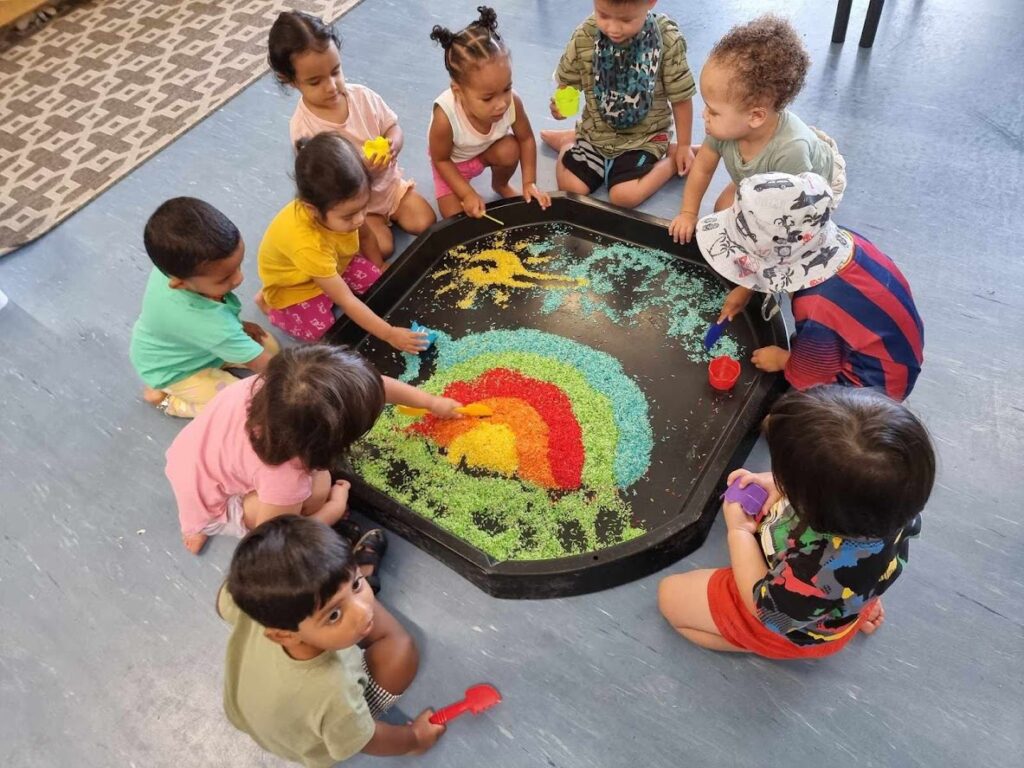
Learning from the Land: How Milestones Children Connect with First Nations Culture
At Milestones, we believe every child should grow up with a strong sense of belonging — to their community, to Country, and to the stories that shape who we are as Australians.
This National Reconciliation Week, we’re proud to share how children across our centres are learning about and celebrating First Nations culture in ways that are gentle, joyful, and full of meaning. These experiences help our youngest learners build respect, empathy, and connection — values that will guide them for life.
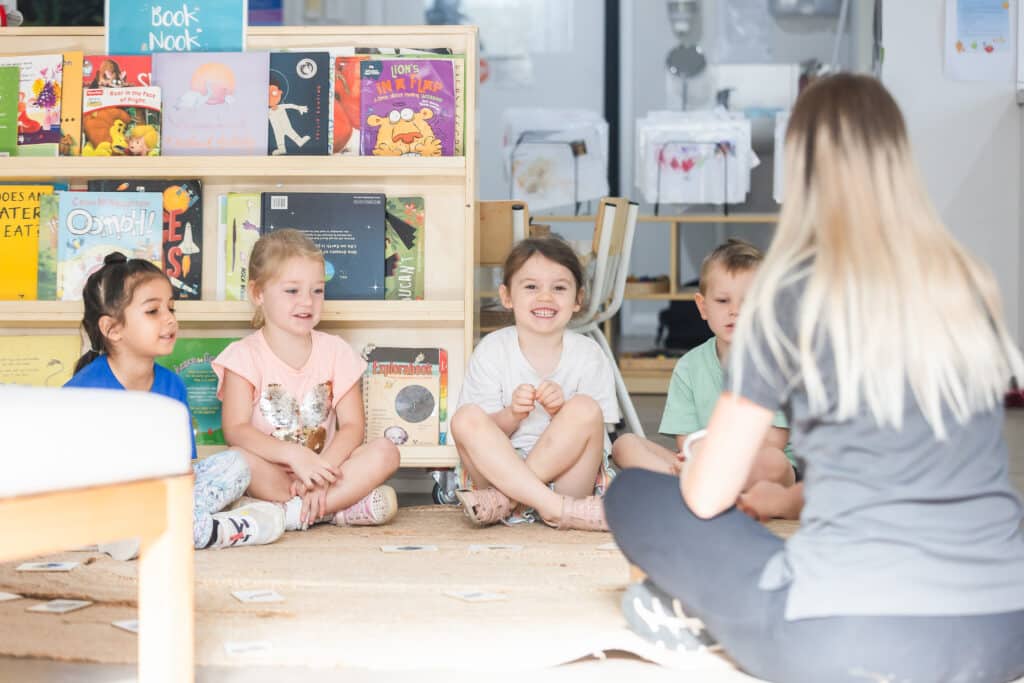
Little Detectives: How Inquiry-Based Projects Prepare Your Child for Big School
If your child has ever asked “How do bees make honey?” or “Why do clouds float?”—you’re not alone. At Milestones Early Learning, we believe those curious little questions are where real learning begins.
That’s why inquiry-based projects are a key part of our School Readiness Program and our exclusive Lifelong Learning Curriculum. These projects spark curiosity, build confidence, and give children the kind of hands-on, meaningful learning experiences that stay with them—long after they’ve left our centre and stepped into a big school classroom.
With the support of our experienced educators—who know just how to bring big ideas to life for little learners—your child becomes the lead investigator in their own learning journey.
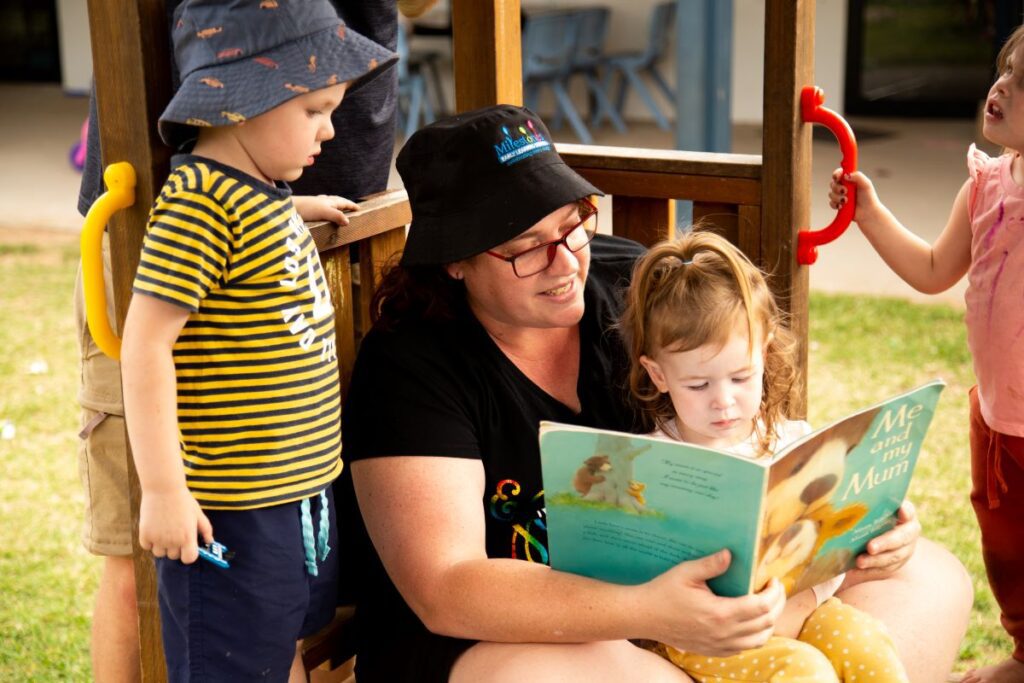
Homegrown Learning: 10 Easy Activities to Boost School Readiness
If you’ve ever wondered whether your child is ‘school ready’ — you’re not alone. Many parents feel a little unsure, especially if this is your first time navigating the journey from early learning into primary school. The good news? You’re probably doing more to prepare your child than you realise — and it all starts with simple, everyday play.
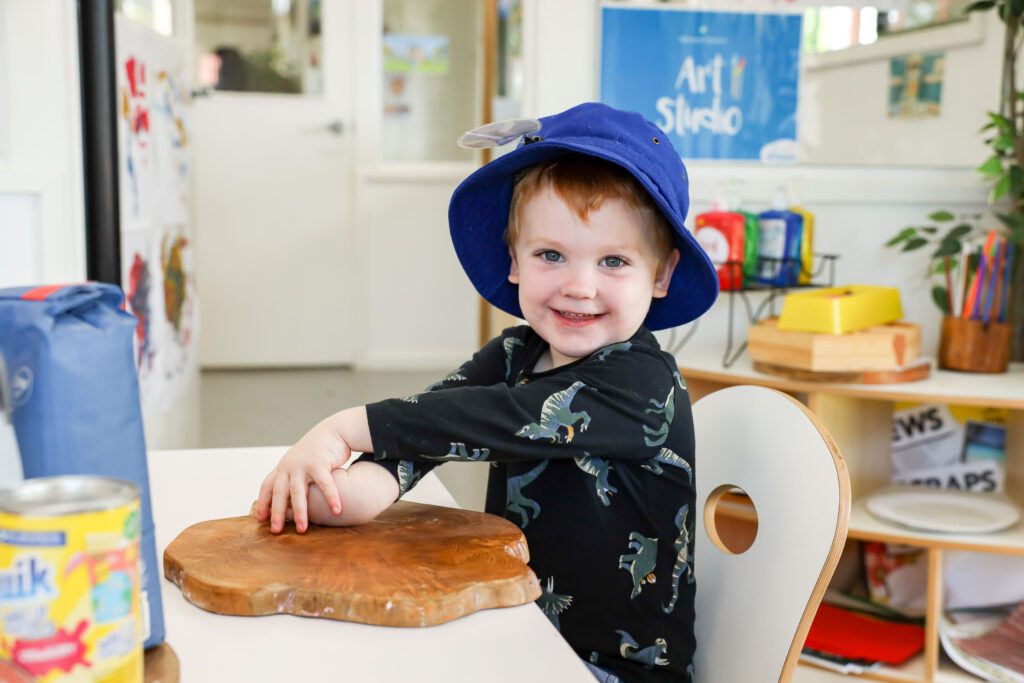
Is Your Child Ready for School? The 5 Key Skills That Matter Most
A simple guide to school readiness in Australia for families with children aged 3–5.
If you’ve been wondering “What should my child know before starting school?”, you’re not alone. For many families, the idea of preparing a child for primary school can feel both exciting and a little overwhelming.
The good news? In Australia, school readiness isn’t about academic achievement. Children don’t need to read, write, or do sums before they start school. What matters most is that they feel confident, curious, and capable of managing the daily routines of a classroom.
So what does that look like—and how can you support your child as they grow?
Here are five essential skills that help children thrive as they take their next big step into school.
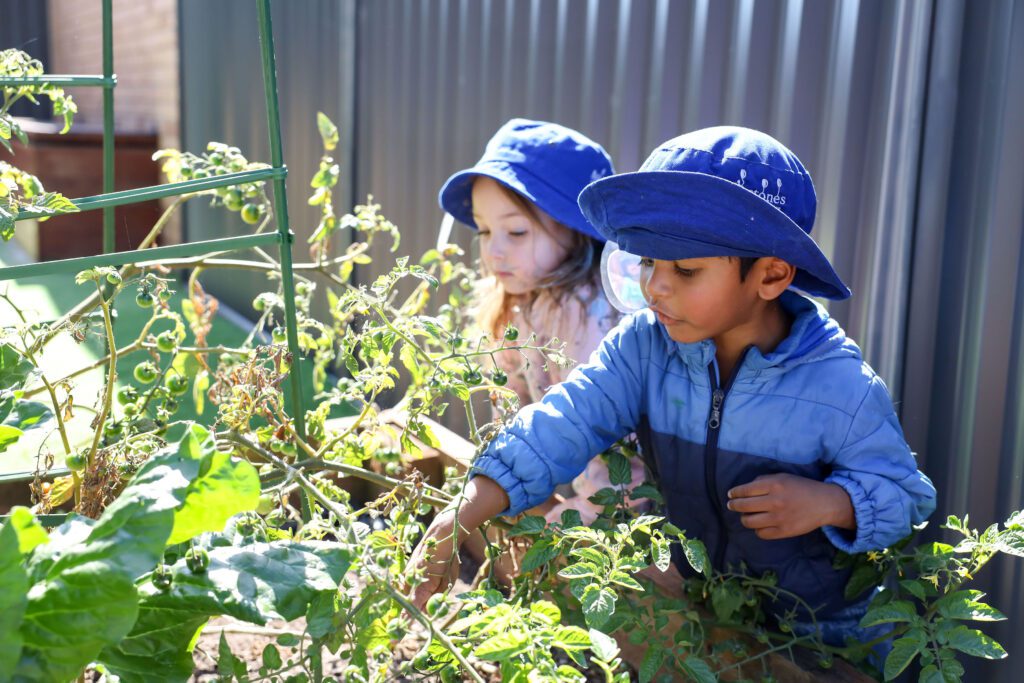
Start Your Own Little Garden at Home: Easy Ideas for Families
With Earth Day coming up on 22 April, there’s no better time to roll up your sleeves, dig into some dirt, and explore sustainability with your little one — right from your own home.
At Milestones Early Learning, we know that children develop a deep connection to nature when they’re given the time and space to explore it. Many of our centres offer opportunities for children to engage with veggie gardens, worm farms, and outdoor learning spaces — helping them understand where food comes from and how to care for living things.
And the best part? You don’t need a big backyard to start a little garden at home.
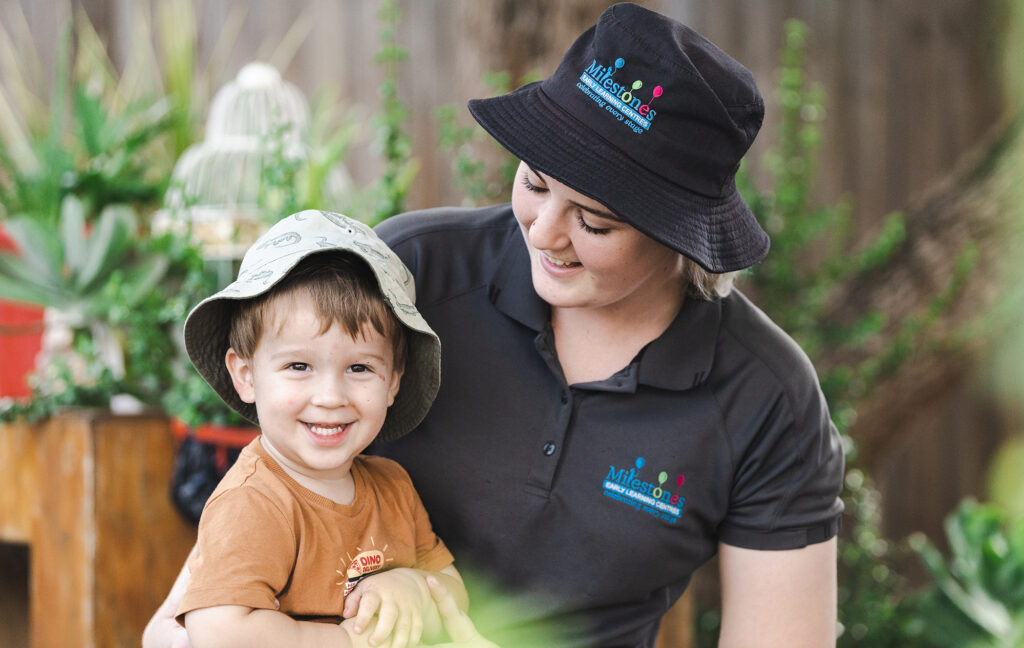
Quality Child Care Builds Confident Kids: How We Support Emotional Wellbeing at Milestones
Whether it’s a tearful goodbye at drop-off, a shy wave to a new friend, or the proud moment your child says “I did it!” – early childhood is full of big emotions.
At Milestones, we know these everyday moments are more than just milestones—they’re the building blocks of lifelong emotional wellbeing. That’s why supporting children’s mental health is woven into everything we do.

Healthy Habits Start Early: How Milestones Supports Your Child’s Wellbeing
Celebrating World Health Day – 7 April
At Milestones Early Learning, every day is an opportunity to support the health and wellbeing of the children in our care. This World Health Day (7 April), we’re highlighting the important role early childhood education plays in building healthy habits that last a lifetime.
From nutritious meals to daily outdoor play and emotional support, we take a whole-child approach to wellbeing—because when children feel well, they learn and thrive.
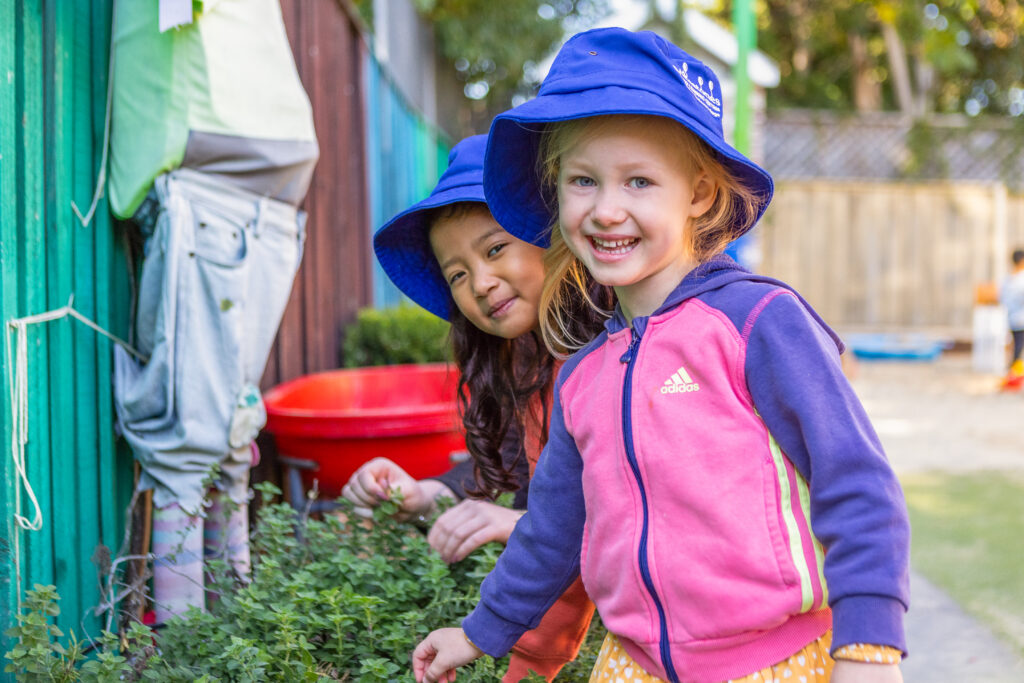
Sensory Play in Autumn: Fun Activities to Try at Home
Autumn is here, bringing crisp air, colourful leaves, and plenty of opportunities for hands-on, messy play with your little one! At Milestones Early Learning, we love incorporating the changing seasons into our play-based learning experiences, and we encourage families to do the same at home. Sensory play isn’t just fun—it helps develop fine motor skills, language, and problem-solving abilities, all while creating lasting memories together.
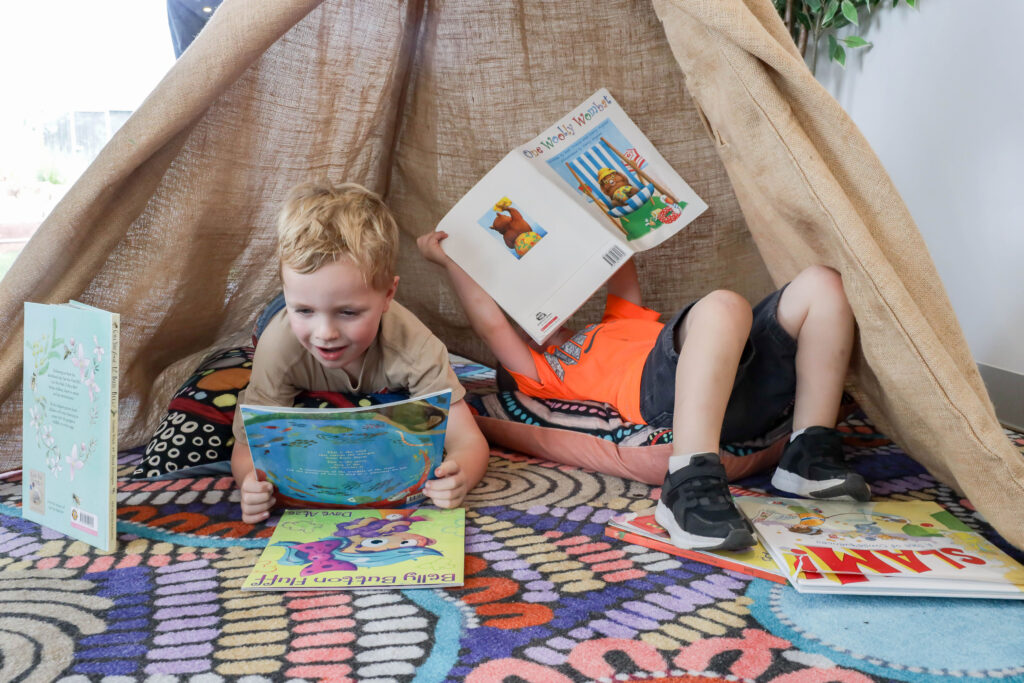
Building Bright Futures: How Milestones Early Learning Centres Foster Foundational Learning
The early years of a child’s life are a time of rapid brain development, curiosity, and learning. Every experience shapes a child’s cognitive, social, and emotional skills, setting the foundation for lifelong learning. At Milestones Early Learning Centres, we understand that these years are crucial in preparing children for primary school and beyond.
